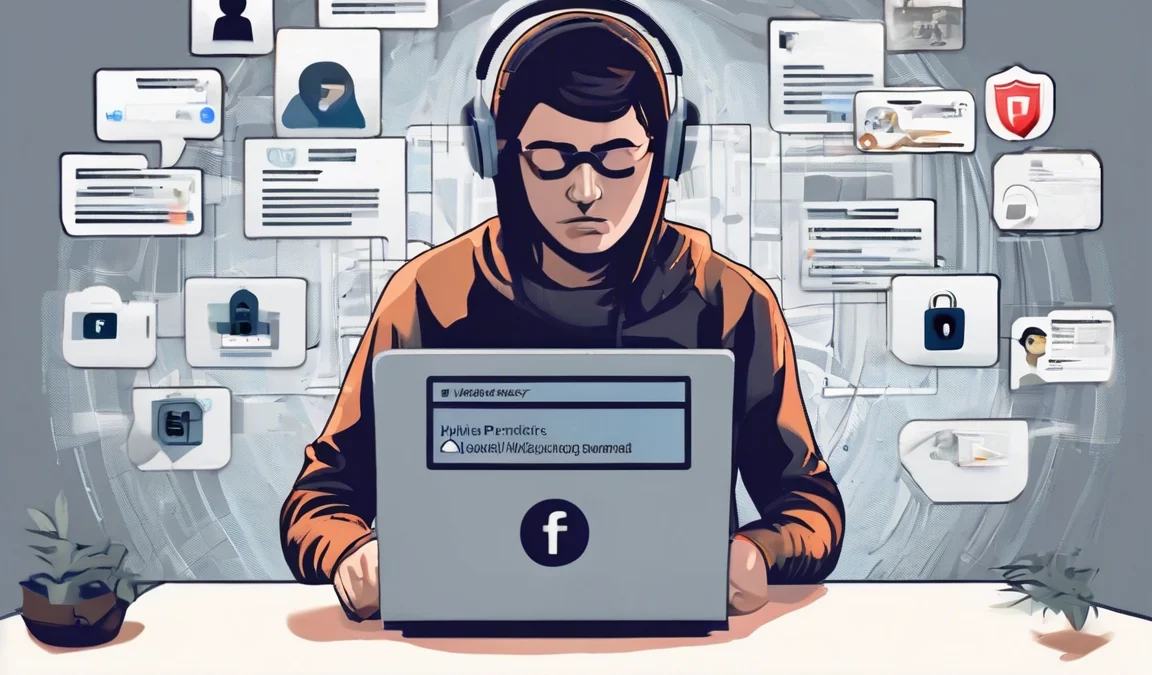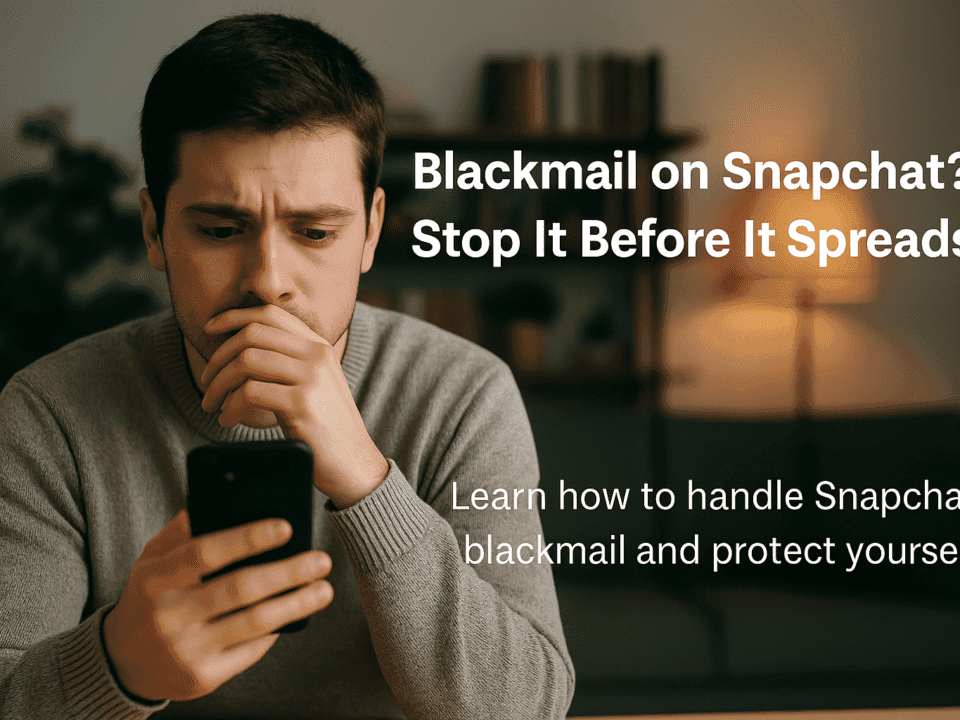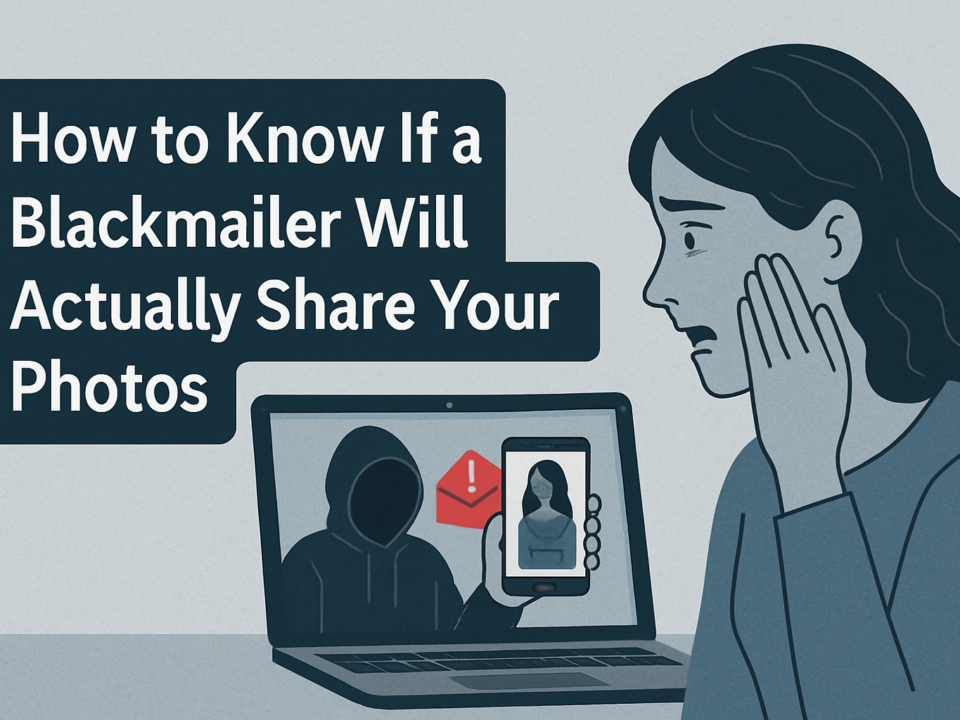
Understanding Sextortion: How to Recognize, Prevent, and Stop It
May 25, 2025In today’s digital world, your private information is more vulnerable than ever. Online blackmail, especially sextortion, is on the rise — and criminals are constantly finding new ways to exploit personal data. The good news? With the right habits and awareness, you can reduce your risk dramatically. Here's how to protect your privacy and prevent online blackmail before it starts.
🔐 1. Lock Down Your Social Media Accounts
Social media is the number one hunting ground for blackmailers. They scan your profiles to gather personal details, locate your family or employer, and create fake connections.
Best practices:
Set your accounts to private
Remove any unnecessary personal information (birthdays, location, school)
Be selective about who you accept as a friend or follower
At Blackmail Shield, we’ve seen victims targeted just because their Instagram account was public and revealed too much.
🛡️ 2. Use Strong, Unique Passwords
Hackers often gain access to emails, social platforms, or cloud storage through weak or reused passwords.
What to do:
Use a password manager to generate secure, unique passwords for each site
Turn on two-factor authentication (2FA) wherever possible
Avoid using names, dates, or pet names as passwords
A single compromised password can expose everything.
🎥 3. Avoid Sharing Explicit Content Online or Through Messaging Apps
Even with someone you trust, sending explicit images or videos carries risk. Phones and cloud storage can be hacked, or relationships can turn malicious.
Better option:
If you’re going to share private content, never show your face or any identifiable background. But ideally, avoid it altogether.
Many sextortion cases begin with a moment of trust — and end in threats.
🚫 4. Never Engage with Strangers Asking for Private Content
Scammers often pose as attractive individuals and try to build online relationships to lure you into sharing explicit content. If a stranger online pushes you to move quickly into intimate conversation — it’s a red flag.
Signs it’s a scam:
They avoid video calls or only show pre-recorded footage
Their story feels too good to be true
They push for secrecy
🧠 5. Think Before You Click
Links in emails, DMs, or texts can contain malware or lead to phishing sites that steal your login credentials.
Tips to stay safe:
Don’t click links from unknown senders
Hover over links to preview the actual URL
Install antivirus software that scans links and downloads
Blackmailers sometimes gain access to private images through spyware or hidden screen-recording apps.
💬 6. Keep Communication Channels Secure
Only use secure, encrypted apps when discussing sensitive topics. Avoid platforms that don’t offer privacy protection.
Recommended tools:
Signal or Telegram for private messaging
VPNs to protect your IP and location data
📤 7. Clean Up Old Content and Accounts
The longer your digital trail, the more data blackmailers can find. Outdated accounts or stored content can come back to haunt you.
Do this regularly:
Delete unused accounts (old social media, forums, etc.)
Clear out cloud storage and old phone backups
Remove apps that request access to your camera, mic, or location
🧾 8. Educate Yourself and Stay Updated
New scams are evolving every day. Being aware of the latest tactics helps you avoid falling for them.
Stay informed with:
Cybersecurity blogs and alerts
Blackmail Shield’s updates and prevention guides
Government or nonprofit cybercrime alerts
✅ How Blackmail Shield Helps You Stay Safe
At Blackmail Shield, we help clients before, during, and after a blackmail threat. Here’s how we protect your privacy:
Expert removal of explicit content
Blackmailer disruption and investigation
Secure, anonymous communication
Legal guidance and digital security upgrades
Whether you're concerned about your safety or already being targeted, we act fast — with 100% confidentiality.
🚨 Final Thoughts: Prevention Is the Best Defense
Online blackmail is terrifying, but preventable. By following these simple yet powerful steps, you can significantly reduce your exposure and stay one step ahead of scammers.
If you suspect someone’s trying to manipulate or blackmail you, don’t wait.
👉 Need Help or a Privacy Review?
Contact Blackmail Shield today for a private consultation. Our experts are available 24/7 to advise, protect, and defend you.




